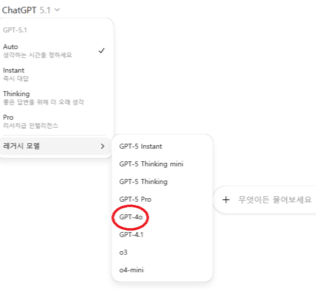OpenAI has announced that it will end API support for GPT-4o, its flagship multimodal model, in February 2026. The decision signals the beginning of GPT-4o’s exit from the developer ecosystem, marking the first major step toward phasing out one of the most widely used AI models of the past year.
The company stressed that the policy applies only to the API. It has not yet decided when GPT-4o will be removed from the consumer version of ChatGPT.

Support Ends on February 16, 2026 as Developers Enter a Three-Month Transition Period
In an email sent on November 21 local time, OpenAI notified developers that GPT-4o API support will officially end on February 16, 2026. The announcement is more than a routine model update. For many developers it represents a clear signal that the company is preparing to retire a model used by hundreds of millions of people.
Developers now have roughly three months to migrate GPT-4o powered features to the GPT-5.1 family. OpenAI described the window as a sufficient transition period and indicated that the gradual phaseout of GPT-4o has already begun.
The company repeated that the move affects only the API. No timeline has been set for when GPT-4o will disappear from ChatGPT.
GPT-4o Pioneered the Era of Unified Multimodal AI
When GPT-4o launched in May 2024, it became the first major AI system to process text, audio, images and vision within a single neural network. The model eliminated delays and information loss common in earlier pipeline based systems and transformed the way AI assistants converse with users in real time.
GPT-4o quickly became the de facto default model inside ChatGPT. It powered core features including screen analysis, web browsing, file interpretation and the memory system.
Even with this prominence, GPT-4o is now positioned for a generational handoff as OpenAI shifts its strategic focus.
Praise, Problems and the Brief Removal Controversy
GPT-4o gained a reputation for strong performance but also drew criticism for flattery, hallucinations and erratic or over-emotional responses. When OpenAI launched GPT-5 in August, the company temporarily removed GPT-4o from ChatGPT without advance notice. The abrupt change sparked a wave of pushback from users.
OpenAI restored GPT-4o within days. CEO Sam Altman admitted that the removal was a mistake intended to reduce hallucinations. The incident led to a new internal rule: future model removals would be announced ahead of time. The latest API announcement appears to honor that pledge.
OpenAI Shifts Its Center of Gravity to GPT-5.1
OpenAI is now promoting GPT-5.1 as its core model for the next phase of development. Released on November 12, GPT-5.1 strengthens conversation stability, long-context reasoning and inference quality while maintaining the friendly tone associated with GPT-4o. The company refined the model after early users complained that GPT-5 felt too rigid and robotic.
OpenAI now recommends GPT-5.1 as the default choice for new projects. As a result, GPT-4o API usage has already fallen significantly.
Cost Structure Speeds the Exit of GPT-4o
GPT-4o also carries a cost disadvantage. Its input token price is higher than that of GPT-5.1, while output token prices are identical. The economics weaken the case for developers to keep using GPT-4o. For OpenAI, retiring older models increases operational efficiency.
A New Norm for Transparency in Model Phaseouts
The company appears determined to avoid a repeat of the abrupt GPT-4o removal that caused confusion earlier this year. By announcing the API shutdown three months in advance, OpenAI is signaling a shift toward clearer communication with users and developers.
As AI models evolve rapidly, the company is moving away from the early practice of sudden feature changes without warning. Industry observers say OpenAI is now trying to establish a transparent update framework centered on user trust.
by Ju-baek Shinㅣjbshin@kmjournal.net
- Google Gemini 3 Shows “Signs of Life” as It Pushes Toward AGI
- OpenAI Unveils “GPT-5.1 Codex Max,” Declares It the World’s Best Coding AI Surpassing Google’s Gemini 3
- Google Goes All In: With Gemini 3, the Search Giant Finally Takes the Gloves Off
- Google Unveils Gemini 3 and Signals a New Phase in the AI Race
- OpenAI Ranked as Silicon Valley’s Second Most Vulnerable “AI Bubble” Company as Mounting Losses Raise Concerns
- “ChatGPT Now Supports Multi-Person Conversations”… OpenAI Pilots ‘Group Chat’ in Korea

![[동학] 카카오톡 친구탭, 결국 12월 롤백… “격자형 피드는 선택 옵션으로”](https://cdn.kmjournal.net/news/thumbnail/custom/20251126/5517_10550_1119_1763853080_120.jpg)


![[테크 칼럼] 제미나이3, GPT-5.1을 넘다…AI는 이제 ‘일을 대신하는 시대’로 간다](https://cdn.kmjournal.net/news/thumbnail/custom/20251126/5457_10454_4847_1763621329_120.jpg)



![[낭만 테크 시대] AI 대항해 시대](https://cdn.kmjournal.net/news/thumbnail/custom/20251126/5603_10714_4334_1764121414_160.jpg)

